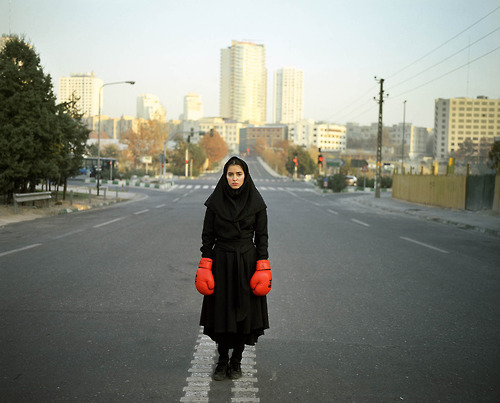G.D. Falksen's Blog, page 1283
August 5, 2012
hoodoothatvoodoo:
Illustration by Rene Gruau
August 4, 2012
sisterwolf:
Vintage flower boy
sisterwolf:
© Newsha Tavakolian
omgthatdress:
Robe à la Française
1730-1740
The Los Angeles...
August 3, 2012
dailyotter:
Monterey Bay Aquarium Remembers Otter “Super...
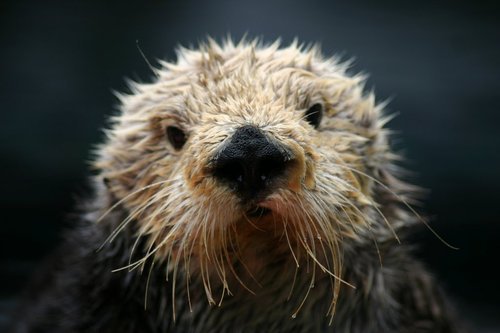
Monterey Bay Aquarium Remembers Otter “Super Mom”
The aquarium writes:
The Aquarium is sad to announce the death of Joy, its “Super Mom” who raised a record number of stranded sea otter pups, many of which were returned to the wild, where they’re raising pups of their own…
The precocious sea otter was a keystone of the surrogacy program of the Aquarium’s Sea Otter Research and Conservation program. During her years at the Aquarium Joy raised 16 pups – more than any other surrogate in our history. She raised three pups on exhibit, helping prepare them for life at other U.S. aquariums. Joy did all this despite several medical setbacks during her years here.
“She was a ‘super mom’ for us – easily the most prolific of all our surrogate female otters,” said Karl Mayer, animal care coordinator with the sea otter program. His team also relied on Joy to serve as a companion to adult females it rescued because of illness or injuries.
Read more here
allcreatures:
This past Saturday, local fisherman spotted an...
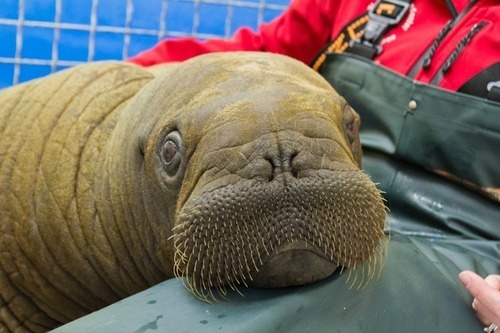
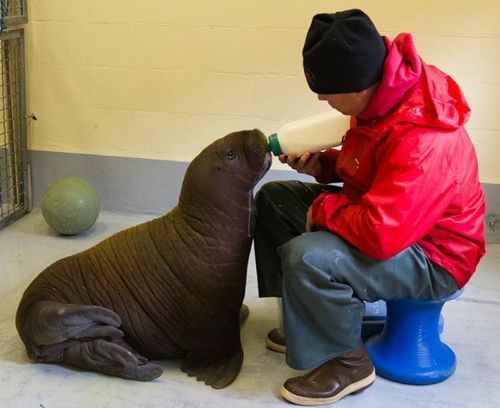
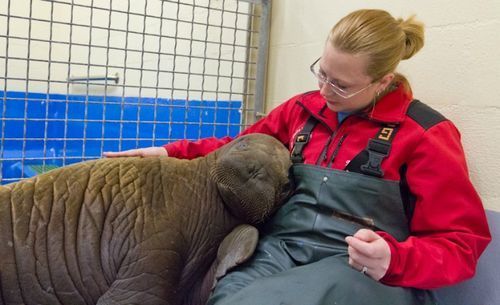
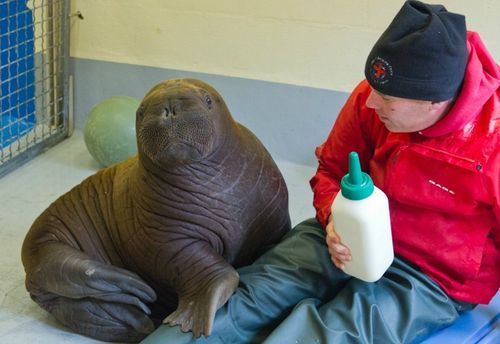
This past Saturday, local fisherman spotted an orphan Pacific Walrus calf on floating ice near Barrow, Alaska. After a period of observation from U.S. Fish and Wildlife Service, a rescue was approved and Alaska SeaLife Center staff and a local veterinarian prepared the 200lb. baby for airlift to Anchorage and transport by modified truck to ASLC in Seward.
The calf is suckling readily from a bottle, feeding every three hours around the clock, and consuming nearly 1,400 calories at each feed. He is actively seeking attention from care-givers, and vocalizing when left alone. “Walrus are incredibly tactile, social animals,” said Stranding Coordinator Tim Lebling. “Walrus calves typically spend about two years with their mothers, so we have to step in to provide that substitute care and companionship.” Walrus calves almost immediately habituate to human care and therefore are not candidates for release following rehabilitation.
Read more, see a video of the walrus and learn more about the Alaska SeaLife Center at the link below. Photos from the Alaska SeaLife Center.
(via Zooborns)




